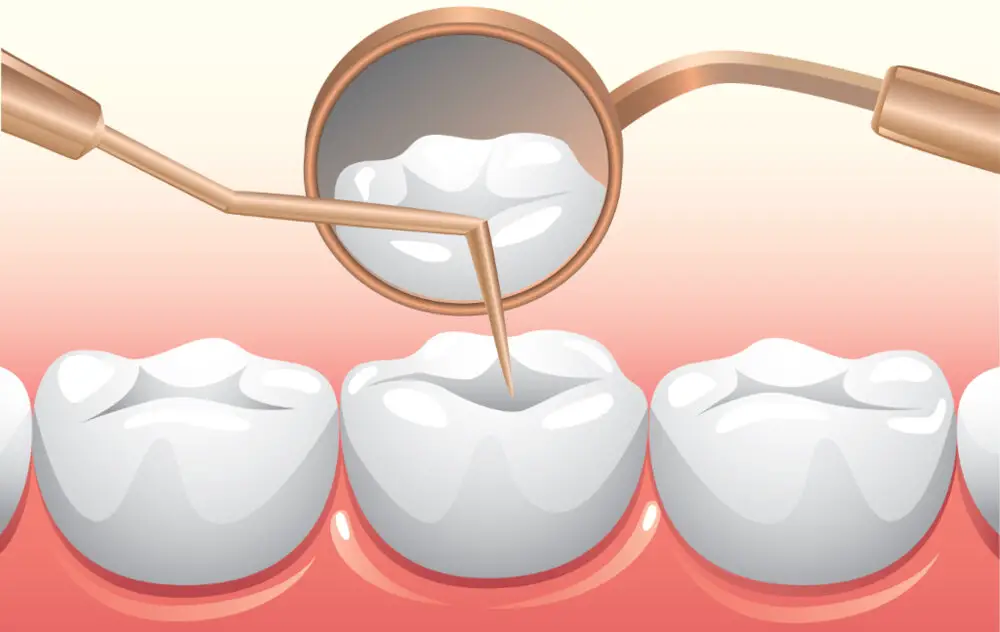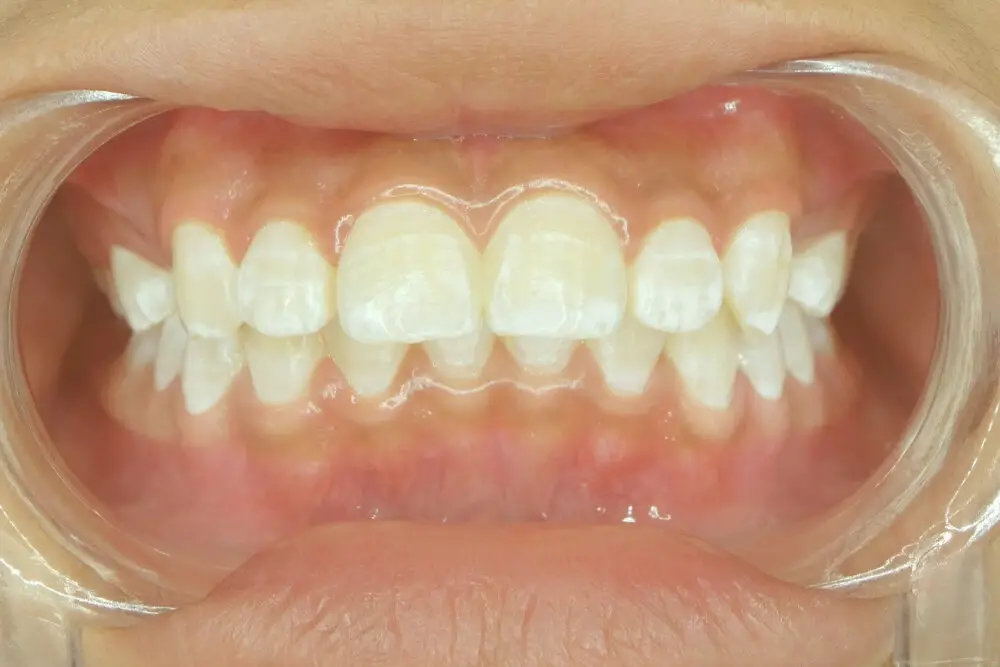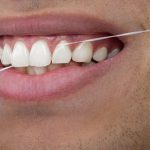Wisdom Teeth Ear Pain Relief: Effective Techniques and Home Remedies

Wisdom teeth ear pain is a common issue experienced by many, especially during their late teenage years and early adulthood. It occurs when wisdom teeth grow in the back of the mouth, causing pressure on the surrounding areas, including the ears. This can lead to earaches, headaches, and other discomforts. Fortunately, there are many effective techniques and home remedies that can help alleviate wisdom teeth ear pain. One of the most effective techniques for wisdom teeth ear pain relief is to visit a dentist. They can determine whether your pain is caused by wisdom teeth and provide proper treatment, such as extraction or medication. In addition, there are various home remedies that can help ease the pain, including applying a warm compress, rinsing with salt water, and taking over-the-counter pain relievers. By using these techniques and remedies, you can find relief from the discomfort associated with wisdom teeth ear pain.
Understanding Wisdom Teeth and Ear Pain

Wisdom teeth are the third and final set of molars that grow at the back of the mouth, usually during the late teenage years or early twenties. These teeth can cause discomfort and pain when they emerge and push against other teeth. One of the common symptoms of wisdom teeth growth is ear pain. This occurs because the nerves in the jaw are closely linked to the ears, and the pressure caused by the emerging wisdom teeth can affect these nerves and cause pain in the ears. Other symptoms of wisdom teeth growth include swelling, redness, and tenderness in the gums, difficulty opening the mouth, and bad breath. If you are experiencing ear pain due to wisdom teeth growth, there are some effective techniques and home remedies that can help relieve the discomfort. One of the most effective ways is to use warm salt water to rinse your mouth. This helps reduce inflammation and pain by drawing out any infection or debris that may be causing the pain. Over-the-counter pain relievers such as ibuprofen and acetaminophen can also help relieve the pain and reduce inflammation. Applying a warm compress to the affected area can also help reduce pain and swelling. If the pain persists or becomes unbearable, it is important to seek professional dental care to prevent any complications.
Wisdom teeth are the third molars that usually emerge in the late teens or early twenties. They are located at the back of the mouth and are named after the age at which they typically appear. Most people have four wisdom teeth, but some may only have one, two, or three. These teeth often cause problems due to their tendency to grow in at awkward angles or not fully emerge from the gums, leading to pain, swelling, and infection. It is important to monitor the growth and development of wisdom teeth and seek treatment if necessary to prevent further complications.
Wisdom teeth, also known as third molars, can cause ear pain due to their proximity to the ears and the nerves that supply them. As these teeth grow and push through the gums, they can put pressure on the surrounding tissues and nerves, leading to discomfort and pain that can radiate to the ears. Additionally, wisdom teeth can cause inflammation and infection in the gums, which can also lead to ear pain. Proper oral hygiene and regular dental check-ups can help prevent or mitigate the development of wisdom teeth-related ear pain, but in some cases, home remedies and pain relief techniques may be necessary to manage the symptoms.
Techniques for Relieving Wisdom Teeth Ear Pain

Wisdom teeth are the last set of molars that emerge at the back of your mouth between the ages of 17-25 years. While the eruption of wisdom teeth is a natural process, it can cause discomfort and pain, including ear pain. The pain is due to the pressure exerted by the wisdom teeth on the surrounding nerves and tissues. Luckily, there are several techniques and home remedies that can provide relief from wisdom teeth ear pain. One of the most effective ways to relieve wisdom teeth ear pain is by taking pain relievers. Over-the-counter pain relievers such as ibuprofen, aspirin, and acetaminophen can help to alleviate the discomfort and pain. However, it is advisable to consult your dentist or doctor before taking any medication. Another technique to relieve wisdom teeth ear pain is by applying a warm or cold compress on the affected area. A warm compress can help to reduce swelling and inflammation, while a cold compress numbs the area and alleviates the pain. You can use a hot water bottle, a warm towel, or an ice pack to make the compress. Apply the compress for 15-20 minutes at a time, several times a day, until the pain subsides.
Over-the-counter pain relievers are a popular option for those seeking relief from wisdom teeth ear pain. These medications, including ibuprofen and acetaminophen, work by reducing inflammation and blocking the pain signals sent to the brain. It is important to follow the recommended dosage and not exceed the maximum daily amount to avoid harmful side effects. Additionally, it is important to note that these medications only provide temporary relief and do not address the underlying cause of the pain. It is recommended to consult with a healthcare professional if the pain persists or worsens.
Wisdom teeth ear pain can be incredibly uncomfortable, but there are several effective techniques and home remedies available to ease the discomfort. One such technique is applying heat or cold to the affected area. Heat can help to increase blood flow and promote healing, while cold can help to reduce inflammation and numb the area. Depending on your personal preference, you can use a warm compress, such as a hot water bottle or a warm towel, or a cold compress, such as a bag of frozen vegetables or an ice pack. Just be sure to wrap the compress in a towel or cloth before applying it to your skin to avoid burns or frostbite.
Rinsing with salt water is a simple and effective home remedy that can provide relief from ear pain caused by wisdom teeth. Salt water helps to reduce inflammation and kill bacteria that may be contributing to the pain. To create a salt water rinse, add a teaspoon of salt to a cup of warm water and stir until the salt dissolves. Gently swish the solution around your mouth for 30 seconds, making sure to reach the affected area. Then, spit out the solution and repeat several times a day as needed. This natural remedy is easy to make and provides a soothing sensation that can help alleviate discomfort and promote healing.
Clove oil is a natural remedy that has been used for centuries to ease tooth and gum pain. It contains a compound called eugenol, which has both anti-inflammatory and analgesic properties. To use clove oil for wisdom teeth ear pain relief, mix a few drops with a carrier oil such as coconut or olive oil and apply the mixture to the affected area using a cotton ball or swab. Alternatively, you can place a whole clove directly onto the painful area and gently bite down on it, allowing the oil to release and numb the area. While clove oil can be effective in providing temporary relief, it’s important to note that it should not be used as a long-term solution and that consulting a dentist is always recommended for persistent or severe pain.
Home Remedies for Wisdom Teeth Ear Pain

Wisdom teeth ear pain can be a debilitating experience, causing discomfort and difficulty in performing daily activities. Fortunately, there are a few home remedies that can help alleviate the pain. One effective technique is to apply a warm compress to the affected area. This can be done by soaking a clean washcloth in warm water and placing it over the ear. The warmth can help to ease the pain and reduce inflammation. Alternatively, a cold compress can also be used to numb the affected area and reduce swelling. This can be achieved by placing a cold pack or ice wrapped in a towel on the affected area for 15-20 minutes at a time. Another home remedy is to rinse your mouth with warm salt water. This can help to reduce swelling and inflammation in the gums, which can contribute to wisdom teeth ear pain. Simply mix a teaspoon of salt in a cup of warm water and swish it around your mouth for 30 seconds before spitting it out. You can repeat this process several times a day to help alleviate the pain. Additionally, over-the-counter pain relievers such as ibuprofen or acetaminophen can provide temporary relief from wisdom teeth ear pain. However, it is important to consult with a dentist or doctor before taking any medication, especially if you have any underlying health conditions or are taking other medications.
Garlic and onion poultice is another effective home remedy for wisdom teeth ear pain relief. To prepare this remedy, you need to crush a few garlic cloves or onion and wrap them in a clean cloth. Then, place the poultice on the affected area for several minutes. The anti-inflammatory and antimicrobial properties of garlic and onion can help reduce pain and swelling in the ear and jaw area. Additionally, the heat generated by the poultice can help increase blood flow to the area, providing a soothing effect. However, be cautious when using this remedy, as it may cause skin irritation or allergic reactions in some people.
Tea tree oil rinse is a natural remedy that can help alleviate wisdom teeth ear pain. Tea tree oil has antimicrobial properties that can help reduce inflammation and fight off infection. To make a tea tree oil rinse, simply add a few drops of tea tree oil to a cup of warm water and swish the solution around your mouth for about 30 seconds before spitting it out. You can use this rinse a few times a day to help reduce pain and discomfort associated with wisdom teeth ear pain. However, it is important to remember that while natural remedies like tea tree oil can be helpful, they should not replace professional dental care if the pain persists or worsens.
Chamomile tea bags are known for their anti-inflammatory and soothing properties, making them an effective home remedy for wisdom teeth ear pain relief. Chamomile contains several bioactive compounds that have been shown to reduce inflammation and pain. The tea bags can be steeped in hot water for a few minutes, then cooled and applied to the affected area. The warmth of the tea bag can help to reduce pain and swelling, while the chamomile can provide a calming effect to help relieve discomfort. Additionally, chamomile tea can be consumed to help promote relaxation and reduce stress, which can also be beneficial for those experiencing wisdom teeth ear pain.
Turmeric paste is a natural remedy that has been used for centuries to relieve pain and inflammation. Made from the root of the turmeric plant, this paste contains curcumin, a powerful anti-inflammatory compound that can help reduce swelling and pain. To make the paste, simply mix turmeric powder with water or coconut oil until it forms a thick paste. Apply the paste directly to the affected area and leave it on for 10-15 minutes before rinsing off with warm water. The soothing properties of turmeric paste can provide relief for ear pain caused by wisdom teeth, making it a safe and effective alternative to over-the-counter pain medications.
When to See a Dentist

When it comes to wisdom teeth ear pain, it’s important to know when it’s time to see a dentist. Generally speaking, if you’re experiencing any kind of persistent pain or discomfort in your teeth, gums, or jaw, it’s a good idea to schedule an appointment with your dentist as soon as possible. This is especially true if you’re also experiencing ear pain, as this could be a sign of a more serious issue. Your dentist will be able to examine your teeth and gums, take X-rays if necessary, and determine the root cause of your pain. This could be anything from an impacted wisdom tooth to an infection or gum disease. Once the cause is identified, your dentist will be able to recommend the best course of treatment to relieve your pain and prevent any further complications. In some cases, you may be able to manage your wisdom teeth ear pain with at-home remedies or over-the-counter pain relievers. However, if your pain is severe or persistent, it’s always best to seek professional dental care to ensure that your teeth and gums are healthy and free from infection or other issues. By working with your dentist, you can get the relief you need and keep your smile healthy and strong for years to come.
One of the most common signs of infection is swelling and tenderness in the affected area. This can be accompanied by redness and warmth around the site of infection. In some cases, there may also be pus or fluid discharge from the affected area. Other signs of infection can include fever, chills, and general feelings of fatigue or malaise. If you experience any of these symptoms, it is important to seek medical attention immediately as untreated infections can lead to more serious health complications.
Worsening pain is a common symptom experienced by many individuals who have impacted wisdom teeth. As the teeth continue to grow and push against the surrounding tissues, they can cause discomfort and inflammation in the jaw, ears, and throat. This pain can range from mild to severe and can make it difficult to eat, talk, or even sleep. In some cases, the pain may be accompanied by other symptoms such as swelling, redness, or fever. To find relief from worsening pain caused by wisdom teeth, there are several effective techniques and home remedies that can be used to alleviate discomfort and promote healing.
Difficulty opening the mouth is a common symptom associated with wisdom teeth. As the third molars develop, they can push against adjacent teeth and cause discomfort, inflammation, and pain in the jaw muscles. This can make it challenging to open the mouth wide enough to eat, speak, or brush teeth properly. In severe cases, it may even lead to lockjaw, a condition where the jaw muscles spasm and prevent any movement. To ease the discomfort and improve jaw mobility, several techniques and home remedies can be used, such as warm compresses, pain relievers, gentle jaw exercises, and herbal remedies like clove oil or chamomile tea. It’s essential to address the underlying cause of the problem, such as impacted or infected wisdom teeth, and seek professional help if the symptoms persist or worsen.
In the article \Wisdom Teeth Ear Pain Relief Effective Techniques and Home Remedies,\ readers are advised to understand the root causes of wisdom teeth ear pain and explore various effective techniques and home remedies to alleviate discomfort. Although home remedies such as saltwater rinses, clove oil, and warm compresses can provide relief, it is crucial to seek professional dental care if the symptoms worsen or suggest an infection. With proper knowledge and timely intervention, individuals can manage wisdom teeth ear pain and prevent further complications.
Conclusion

In conclusion, wisdom teeth ear pain can be a frustrating and uncomfortable experience. However, there are several effective techniques and home remedies that can provide relief. From applying cold or warm compresses to taking pain medication, these methods can help alleviate the discomfort associated with wisdom teeth ear pain. It is important to always consult with a dentist or healthcare professional before attempting any home remedies or self-treatment. With the right approach, it is possible to manage wisdom teeth ear pain and restore comfort to your daily life.







